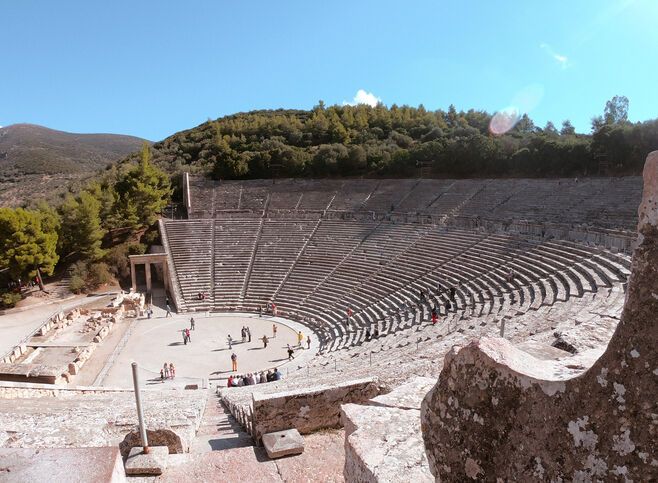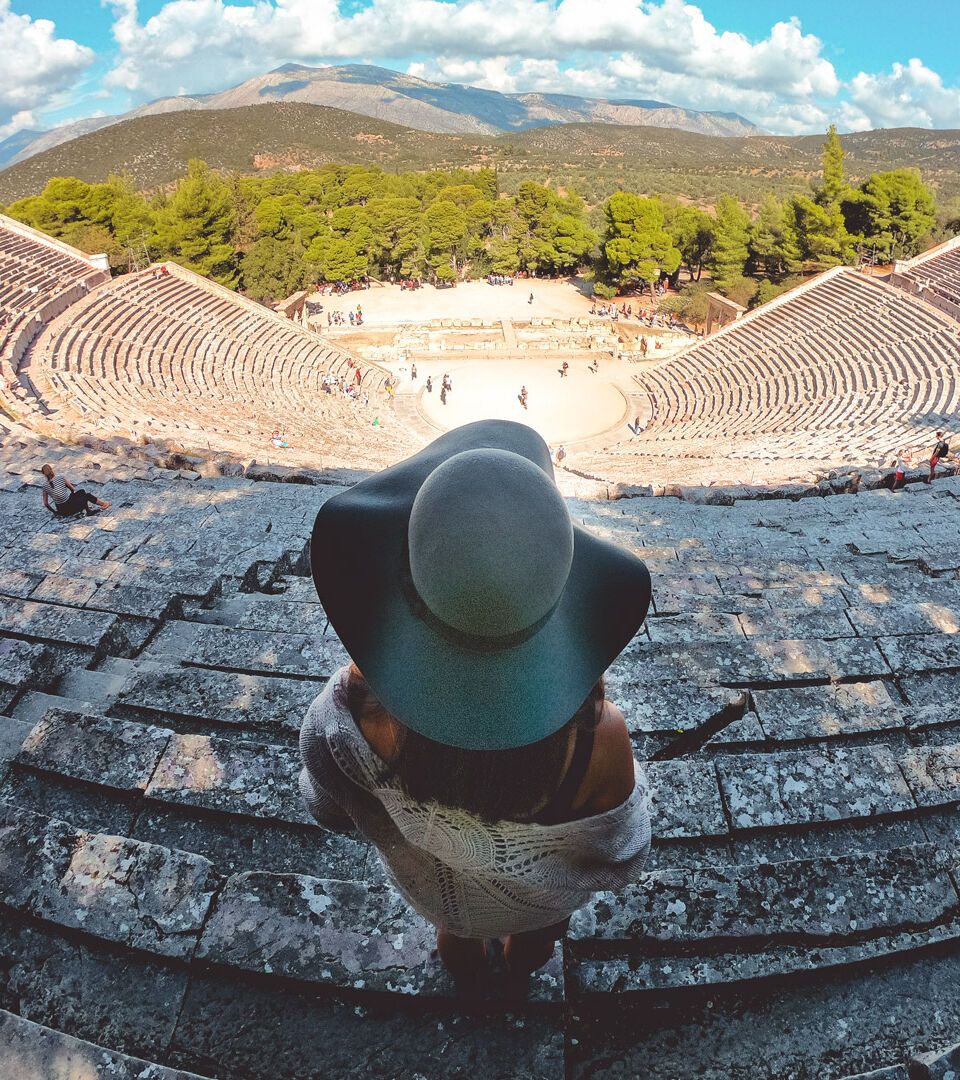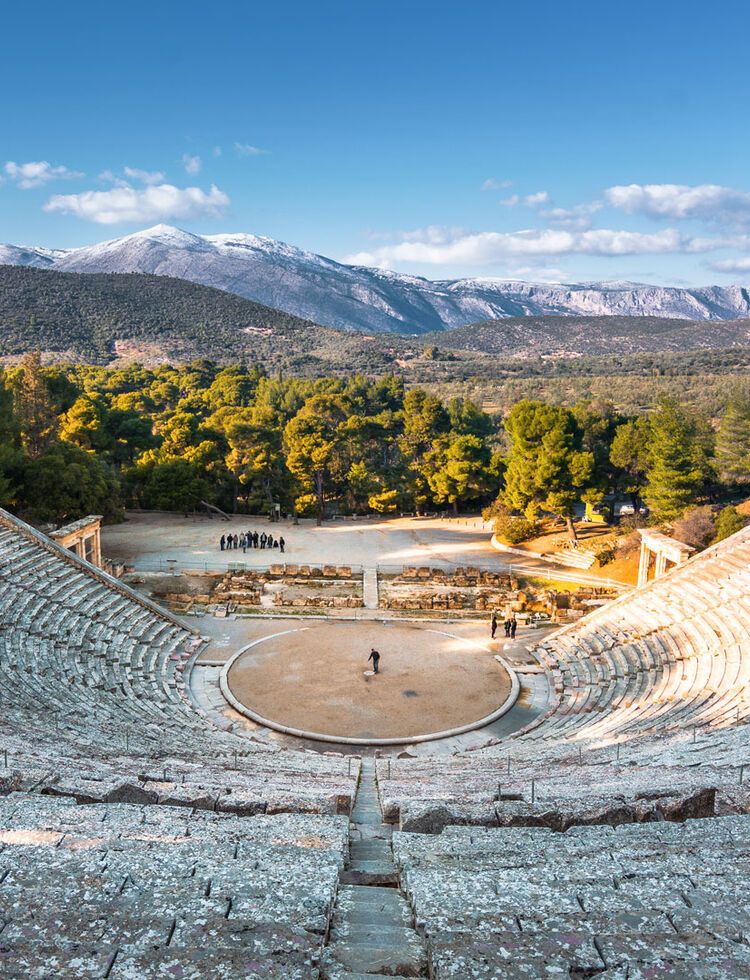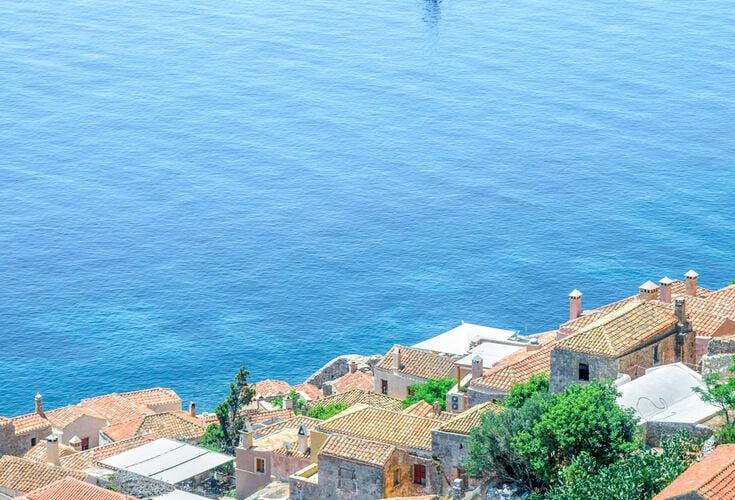You are in the Peloponnese, in the concave of the ancient theatre of Epidaurus. From the upper tier, peace and tranquillity reign over the horizon and you understand immediately why the ancients chose this place to construct the famous Asclepion (or holistic healing centre) of Epidaurus. Now take a deep breath and look around at the grandstand and the stage below, from which you can hear the proverbial pin drop.
The birthplace of Psychagogia, meaning entertainment in the fullest sense of the word, Ancient Epidaurus is possibly the most beautiful open-air, ancient theatre in the world and is renowned for its extraordinary acoustics. Often overlooked, however, is that it was built as part of a wider healing centre. Now a UNESCO World Heritage Site, it is still a therapy for body and soul. And best of all, it is an ancient theatre that is still alive today, with performances of ancient tragedies finding their natural home here in the annual Athens and Epidaurus Festival.
What to do in Ancient Epidaurus
Take a tour of the ancient theatre
The theatre of Epidaurus is one of the world’s most important ancient monuments and a world-class attraction during any holidays in Greece, combining perfect acoustics, elegance and symmetrical proportions. It was built around 340-333 BC so that the patients of the Asclepion could enjoy theatrical performances as part of their therapy and was in use in the 3rd century AD. Imagine it how it once was, when musicians, singers and actors performed here every four years in the spring, honouring Asclepius, the god of medicine.
Explore the Ancient Theatre of Epidaurus
Watch an ancient drama brought to life
The ancient theatre of Epidaurus has once again found a prominent position in modern Greek culture, hosting acclaimed ancient dramas, operas, symphonies and dance performances. Leading local and foreign actors, directors, set designers, choreographers, musicians and composers are all drawn here but the most famous of all performances were those of the Greek National Opera in the early 1960s when the legendary diva Maria Callas sang Bellini’s ‘Norma’ and Cherubini’s ‘Medea’.
Explore the healing landscape
The lush surroundings, including numerous thermal springs, were the ideal location for the Asclepion of Epidaurus – the headquarters of antiquity’s god-physician and one of the most important healing centres of the ancient Greek and Roman world. Its fame travelled beyond the borders of the Argolid and its monuments have become renowned masterpieces of ancient Greek art.
Go to the beach in coastal Old Epidaurus
This seaside settlement of Old Epidaurus, with its latticework of beaches, took life thanks to the performances in the ancient theatre. And every summer, dozens of yachts and sailboats moor at its harbour. Actors and theatre aficionados are drawn to it and many celebrities have built their villas here, among the citrus and olive groves.
Visit Nea (New) Epidavros
A picturesque settlement spreading across the rocky slopes, this sheltered little harbour has an attractive marina. From the Venetian castle, you can admire the Vothylas Gorge.
Take a walk around historical Lygourio
Built at the foot of the Arachnaio mountain chain, Lygourio comes to life every summer thanks to the annual festival. Its many sights are testament to the long, rich history of the region. At the highest point of the village, you’ll see the ruins of the walls of ancient Lyssa.
Hidden gems of Ancient Epidaurus
The Little Theatre of Ancient Epidaurus
Built at the end of the 4th century BC, the little theatre of Ancient Epidaurus was discovered after 23 centuries of silence and oblivion, in 1972. The seats and thrones of the theatre are inscribed with the names of donors. Its first modern performance was for the Greek Festival, ‘Musical July’, in 1995.
Tavernas that perform every night
At a number of traditional tavernas in the area, there are numerous reminders of the big names that have passed through here – actors, directors and opera singers, who dined between rehearsals and after the premieres of their great performances in the ancient theatre. The tradition lives on.
The Kotsiomitis Museum of Natural History
At the entrance of Lygourio, you’ll find this museum, which features rare exhibits that showcase the mineral, paleontological and natural wealth of the Peloponnese and of Greece. Its most impressive exhibit is a 235 million-year-old ammonite found at the site of the ancient theatre.





